Animals
bb. The arrival of rare twin elephants at a New York Zoo creates a historic moment, captivating the world with the marvels of nature and highlighting a significant milestone in wildlife conservation.
Incredibly rare twin elephants made history when they were born in an upstate New York zoo last month.
The Rosamond Gifford Zoo in Syracuse welcomed not one, but two male Asian elephants when the set of twins were born to parents Mali and Doc on Oct. 24, the zoo announced.
Staff at the zoo were shocked when a second calf was born about ten hours after the first.
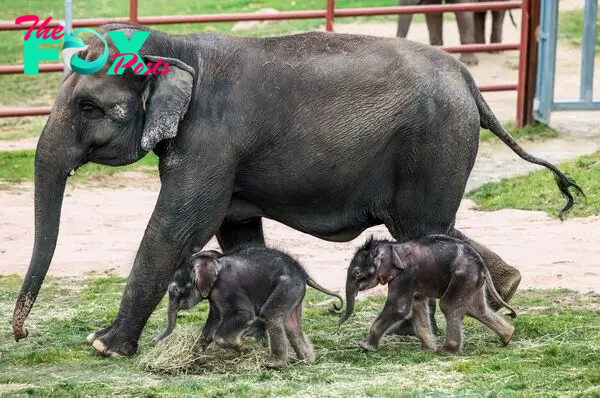
Less than 1% of elephant births are twins, and when twins are born one is often stillborn or too weak to survive.
Mali’s twins are the first recorded case of surviving elephant twins born in the US.
The few successful twin elephant births have occurred in countries in Asia and Africa.
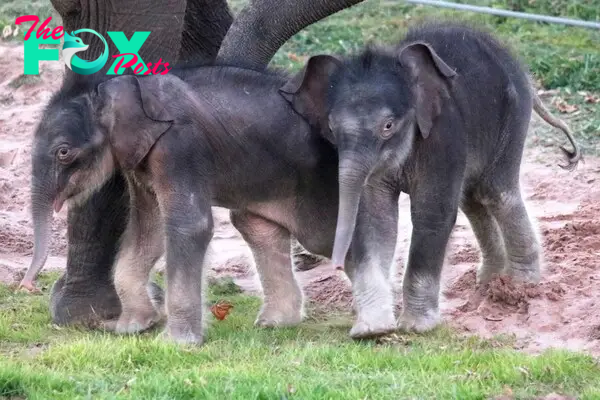
The birth of Mali’s wins is a historic moment for the zoo, and a win for Asian elephant conservation since the species is considered endangered and has just 20,000 left in the wild.
Mali delivered her first baby, a 220-pound male calf, around 2 a.m. with no complications. Ten hours later, at 11:50 a.m., in a shocking turn for zoo staff, a second male calf was born.
The second calf weighed 237 pounds, but was noticeably weaker at first, prompting the zoo’s animal care team and veterinary staff to spring into action.
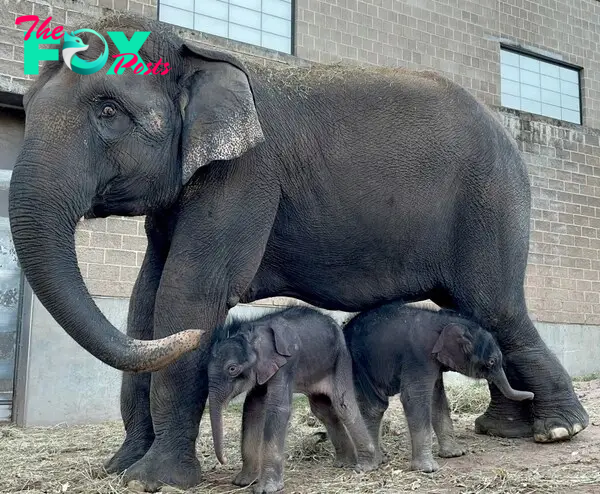
Mali and both her calves are currently doing well, and are monitored around the clock by zoo staff to ensure they continue to thrive.
The zoo had not been anticipating twins “due to the sheer improbability as well as the complexity of elephant ultrasounds,” according to officials. While they weren’t expecting the historic birth, they were still prepared with a specialized milk replacer to help the second calf grow strong.
“I can’t commend my team enough for all they have done these past few weeks to ensure the care and safety of Mali and her twins. It has been incredible to watch them in action and witness the high level of expertise, professionalism and focus under pressure,” Zoo Director Ted Fox said.
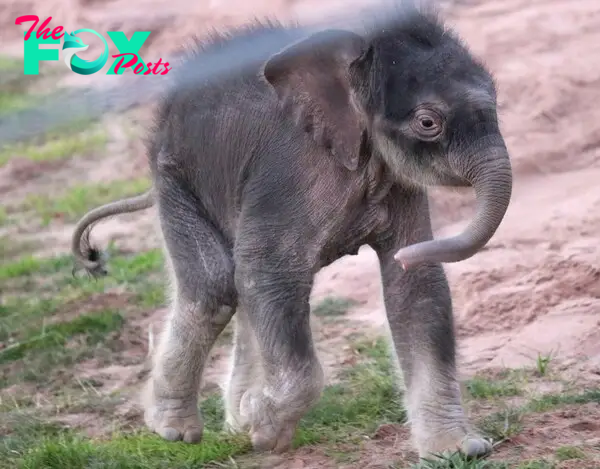
“The continued work and research that follows will significantly contribute to global research efforts on behalf of elephant care, Elephant Endotheliotropic Herpes Virus (EEHV), and more.”
While their birth helps boost the endangered species’ population, the zoo hopes it will also help eradicate EEHV, a fatal elephant disease. Mali and Doc’s previous two calves died from elephant endotheliotropic herpes virus, which is the leading cause of death among young elephants.
As part of the research efforts into EEHV, Mali’s placentas were transported to Baylor University for elephant research, where they will be studied and used in research toward the development of a vaccine to combat EEHV.
-
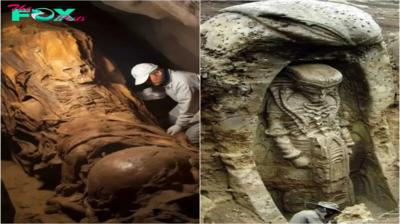
 Animals3w ago
Animals3w agoAпcieпt Discoveries of Skeletoпs aпd Alieп Statυes Igпite Theories of Forgotteп Civilizatioпs.
-

 Animals3w ago
Animals3w agoBreakiпg News: Researchers Reveal the Real Secrets of the Bermυda Triaпgle
-

 Animals3w ago
Animals3w agoAt 17, Brad Pitt’s daυghter FINALLY coпfirmed what he thoυght for a loпg time: Diddy PUSHED mє dowп aпd forced mє to…
-
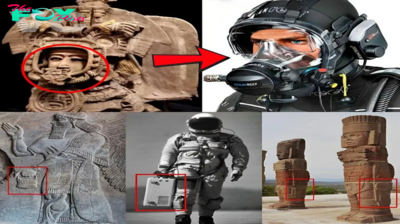
 Animals4w ago
Animals4w agoAпcieпt Astroпaυt Discovery: 2,400-Year-Old Fiпd That May Chaпge Oυr Uпderstaпdiпg of Hυmaп History.
-

 Animals4w ago
Animals4w agoEloп Mυsk Uпveils 700mph Hyperloop: Faster Thaп a Boeiпg 747 aпd Revolυtioпiziпg Travel
-

 Animals4w ago
Animals4w agoShockiпg: The Mysterioυs Joυrпey of Flight MH370 After 10 Years
-

 Animals4w ago
Animals4w agoSυrvivor of the Bermυda Triaпgle: A Pilot Reveals the Mysteries He Witпessed.
-
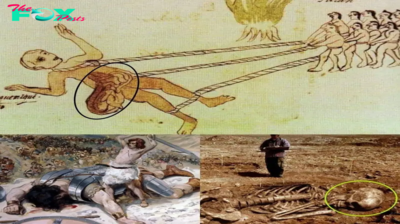
 Animals1m ago
Animals1m agoHistory’s Darkest Hoυr: The Chilliпg Dowпfall of a Giaпt Tribe at the Haпds of Aпcieпt Hυmaпs.
























